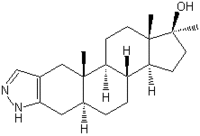AMELIA ISLAND, FLA. -- Internet access needs to be part of every ob.gyn.'s clinical practice, Dr. David A. Nagey said at an ob.gyn. update sponsored by Emory University.
The World Wide Web provides the opportunity for physicians to learn new things and refresh their current knowledge base. "Frequently I see problems that I've never heard of before or have forgotten about," said Dr. Nagey, director of the perinatal outreach program at Johns Hopkins University, Baltimore.
Dr. Nagey has a computer on his desk that is connected to the Internet to assist in patient inquiries, many of which are prompted by dubious information they have found online.
For example, imagine that a 32-year-old patient comes in for preconception counseling. She and her partner want to know about their risk of Tay-Sachs and Canavan's disease, given that they are both of Asbkenazi Jewish heritage. They also want to know about the risk of Smith-Lemli-Opitz syndrome, which affects one of their siblings.
One place to go is the Web site of the American College of Obstetricians and Gynecologists (www.acog.org). ACOG members can access committee opinions, educational and technical bulletins, and practice bulletins. Searching for "Tay-Sachs disease" and "Canavan disease" at the AGOG site brings up the committee opinions on each disease, which provide information on screening and counseling.
For more information on the intricacies of genetics, go to the National Center for Biotechnology Information's site, which has a feature called the Online Mendelian Inheritance in Man (www.ncbi.nlm.nih.gov/Omim/searchomim.html). Searching for "Smith-Lemli-Opitz syndrome" brings up detailed information about the disease and a clinical synopsis.
To find out if prenatal screening for a specific disease is possible, go to GeneTests (www.genetests.org), a genetic testing resource funded by the National Institutes of Health and the Health Resources and Services Administration. Searching the Genetics Lab Directory on the site brings up easy to read information on the disease, prenatal testing and comprehensive information on lab oratories that can test for it.
Consider another scenario in which a 25-year-old pregnant woman who has a history of angioedema and is taking stanozolol. Her primary care physician has proposed a trial of Ci-esterase inhibitor.
Searching for "angioedema" at Harrison s Online (www.harrisonsonline.com) brings up the entire chapter from Harrison s "Principles of Internal Medicine." Though the service is subscription based, it is well worth the money Dr. Nagey said.
For information on drug use in pregnancy, try PubMed (www.ncbi.nlm.nih.gov/PubMed), MEDLINEplus (www.nlm.nih.gov/medlineplus/druginformation.html), or RxList (www.rxlist.com), a drug index. Information on stanozolol, which is an orphan drug, cannot be found at these sites but is at MICROMEDEX (www.micromedex.com), a subscriber-based collection of 25 different databases, 3 of which are reproductive pharmacology databases.
Useful Web sites on HIV/AIDS include the HIV/AIDS Treatment Information Service (www.hivatis.org), which contains treatment guidelines for pregnant women, and the Johns Hopkins AIDS Service Web site (www.hopkins-aids.edu).
Sources for evidence-based practice information are the Cochrane Collaboration (www.cochrane.org), which contains numerous reviews relating to pregnancy and childbirth, and the Agency for Healthcare Research and Quality (www.ahrq.gov).
COPYRIGHT 2001 International Medical News Group
COPYRIGHT 2001 Gale Group



